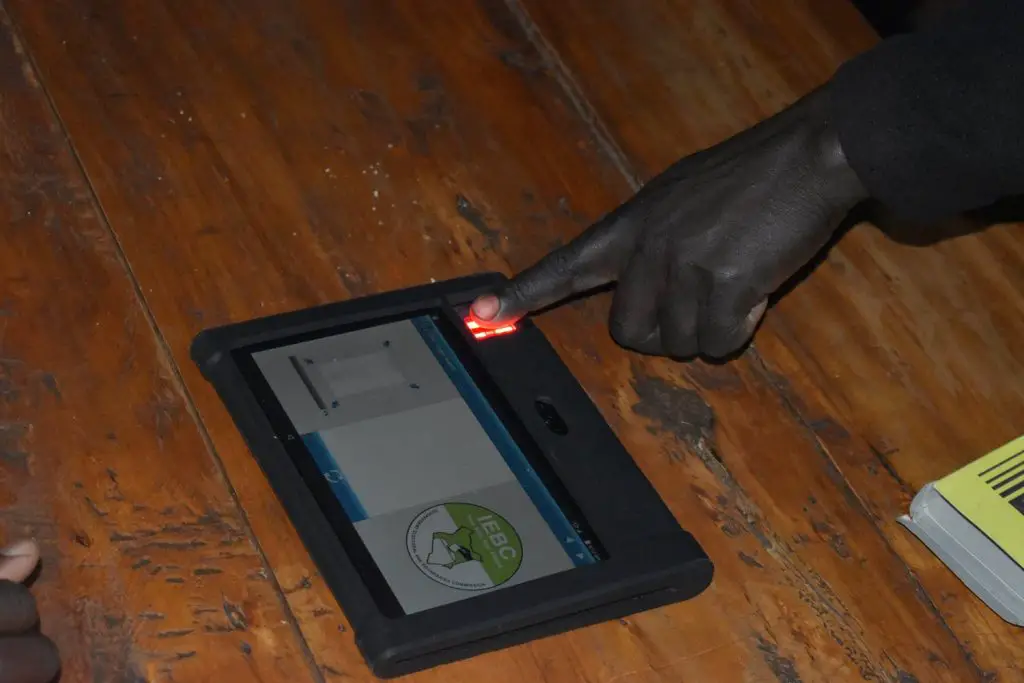- Africa’s new dawn: the rising role of digital and AI in agriculture
- Can Dangote Refinery Transform Africa Energy Ambition
- Gallup Survey: 80 per cent of Kenyan Workers Are Disengaged and Seek New Opportunities
- Madagascar Man Freed from 5KG Tumor After 15-Year Struggle
- How women in Africa are perceived and treated
- Sugar consumption in Kenya to Increase to 1.23 Million Tonnes
- Can Somalia and Turkey Oil deal Bring Change in Somaliland
- Remittances to Kenya dropped to $371.6 million in June, marking a six month low
Browsing: Blockchain technology
- The situation involving Binance in Nigeria has turned sour due to several events.
- For a few years, the Binance marketplace seemed to work well enough, but in 2023, the Nigerian government ended the naira’s peg to the US dollar as part of sweeping economic reforms.
- In what is now a testament to the sprained relationship between Binance and Nigeria, the authorities filed tax evasion charges against the cryptocurrency exchange.
Binance Under Regulatory Spotlight
Binance’s journey from a small start-up to one of the largest cryptocurrency exchanges globally has been impressive but not a smooth run. The platform’s rapid growth and global expansion brought it under the regulatory spotlight globally.
…- Creative disruption is predominant in Africa’s orange economy.
- Emerging technologies solve several challenges, even in areas beyond the orange economy.
- Carefully mitigating risks and developing an enabling environment will be key to unlocking the potential of Web 3.0 for Africa’s orange economy.
Recent economic challenges have reminded the world and Africa of the need for economic diversification. The orange economy, otherwise known as the creative industry, is one area that has grown significantly over the last couple of years, presenting endless opportunities for Africans considering the region’s youthful population and wealth of cultural assets.
Nevertheless, comparative advantage alone might not be sufficient to capitalise on the orange economy’s emerging trends fully. It is essential to explore another emerging sector, the Web 3.0 economy, and how it can be leveraged to benefit the orange economy.
The orange economy’s susceptibility to disruptive technology
The orange economy covers various activities that can convert …
A new chapter is being written in the vast expanse of Africa, where ancient civilizations once thrived and folklore has been passed down through generations. This chapter speaks of a financial revolution, a transformative movement that promises to redefine the continent’s economic landscape. At the heart of this transformation is the SRS token, a groundbreaking innovation by the Humanity Protocol poised to usher in an era of decentralized prosperity.…
The United Nations Conference on Trade and Development (UNCTAD) recently published the Economic Development for Africa 2023 Report. The document, titled “The Potential of Africa to Capture Technology-Intensive Global Supply Chains,” looks at Africa’s capacity to become a prominent player in global supply chains for “high-technology” industries, which include automobiles, mobile phones, green energy, and healthcare.…
Digital assets have become increasingly important in business and commerce, given their growing adoption by institutions, businesses, and individuals globally. Thus, the impact of crypto assets on tax systems has become all but impossible to ignore. As the number of transactions involving crypto assets continues to rise, so does the need for governments to establish a clear policy on taxing such transactions. In such a context, the absence of a deliberate policy position is a policy decision with consequences for tax systems.…
When CBDCs first came to the fore, many touted such a move as a game-changer in digital finance. Many had thought that the adoption of CBDCs in Africa would take the shape of the adoption of cryptocurrencies, where the region leads in many aspects. However, challenges remain. Lack of the requisite infrastructure, low levels of financial literacy, and operational and regulatory challenges have combined to contribute to low penetration and adoption rates for CBDCs.
The lack of adoption is a current failure point for many launched CBDCs. Nigeria’s eNaira had a million customers one year into its launch, a smattering of its 221 million population. The real challenge of CBDCs lies in developing a clear sense of purpose. African central banks must answer to the kind of role that CBDCs will play in the economy and financial systems.…
- An infusion of new investments and regulatory transformations is shaping financial interactions and digital payments in Africa.
- Africa’s digital payments operations produced around $24 billion in revenue in 2020, comprising domestic and cross-border payments.
- For Africa’s digital transition to run smoothly, a cohesive environment that ensures investment and funding remains necessary.
Human commerce constantly seeks more efficient exchange mediums, and this innovation is currently intensifying. Consequently, how individuals pay for products and services has changed dramatically in the 21st century. Digital payments in Africa are gradually replacing cash, and cryptocurrencies and virtual currencies have lately emerged as substitutes for conventional money concepts.
Africa has kept up with, and in some instances led, technological advancement. An infusion of new investments and regulatory transformations is shaping financial interactions and digital payments in Africa. Cash remains king in Africa. However, research indicates that its dominance may be challenged in the future years as …
Africa is a strong contender for developing technologies such as blockchain and cryptocurrency owing to the continent’s growing mobile tech adoption rates. Considering the turbulent global financial markets, expensive remittance costs, and restricted banking access, blockchain in Africa offers alternatives to tackle their day-to-day issues.…
Nigerian presidential contenders must confront persistent insecurity, chronic unemployment, and a deteriorating economic outlook. Bola Tinubu outlined his vision before the Nigeria elections in 2023 in an 80-page paper released by President Muhammadu Buhari at a lavish ceremony on October 21, 2022.…
True to his word, the Independent Electoral and Boundaries Commission (IEBC) Chair Wafula Chebukati has emerged victorious from an all-front attack on the commission he chairs and where his mandate was to announce Kenya’s fifth president.
On Tuesday, August 9, 2022, Kenyans held national elections in a voting system that closely mirrored the Bitcoin blockchain. This technology has saved Kenya from what is usual in many African elections- massive vote rigging.
Despite Raila Odinga, one of the contenders disputing the election results, observers from within and outside Kenya were pleased with the process.
East Africa’s investment hub’s democracy has grown, and most African countries now look to Kenya for governance models. Women leadership was a major focus of the recently concluded exercise.…














